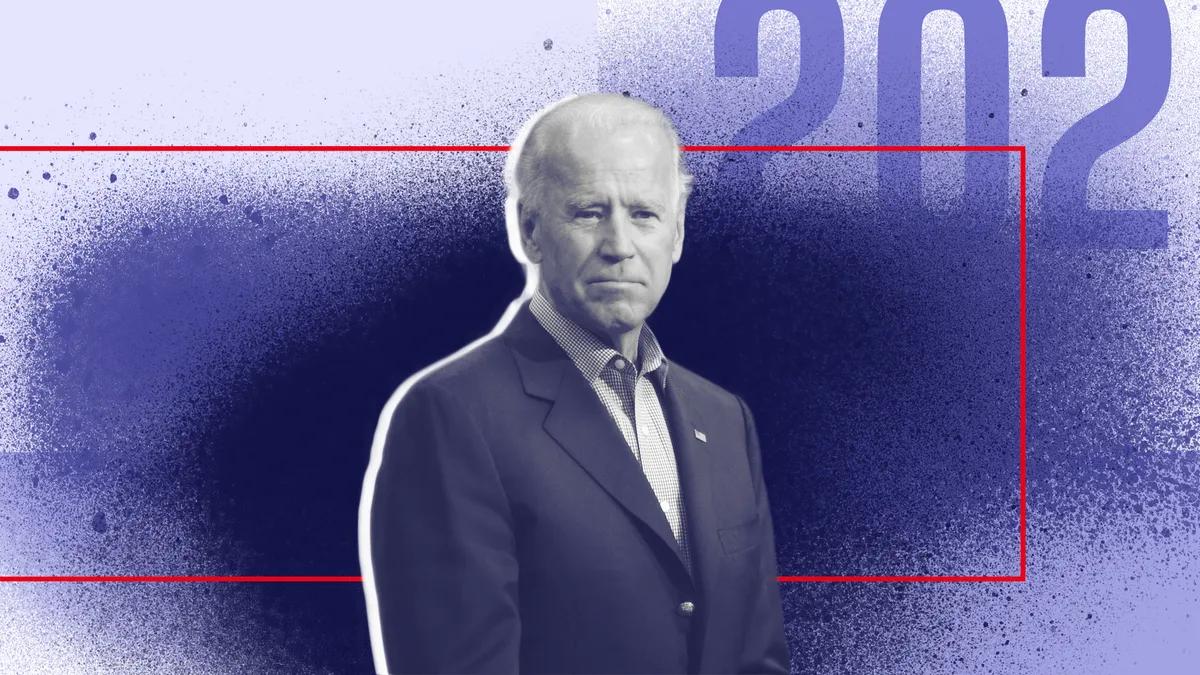Joe Biden on Saturday was projected the winner of an acrimonious and highly unusual U.S. presidential election, qualities of which are likely to impact marketing for months or even years to come. Just as President Donald Trump helped usher in a sea change for the marketing world back in 2016, with brands staking out bolder stances on causes ranging from racial justice to environmentalism, a Biden presidency could significantly alter consumer-facing strategies — although it's doubtful there would be another radical shift for adland.
"Over the past four years, corporations have leaped forward to embrace social leadership alongside answering to shareholders, which has been a great evolution," Stacy DeBroff, chief executive of agency Influence Central, said over email. "But wading into explosive social issues carries intense risk after such a fraught election."
A central part of Biden's platform, embodied in a victory speech given over the weekend, is rebuilding a country where political divides have rarely been starker, a split evidenced by an incredibly close race that saw record voter turnout. In quantitative surveys conducted prior to Trump's victory four years ago, Gartner found 40% of consumers identified as moderate, while 10% and 9% went for "very liberal" and "very conservative," respectively. A similar study the firm ran prior to this year's race offers a striking contrast, with moderate-identifying consumers down to just 21% of the total.
"People have very much migrated out toward the poles," Lindsey Roeschke, a director analyst at Gartner, said. "We all feel it — it's not surprising — but I think it's interesting to see, born out in data, it's not just a political difference; it's a deep ideological difference."
So while Biden has positioned himself as a unifier and stabilizer, that's not necessarily a mission that marketers targeting a national consumer base can latch onto as the mood remains sour and fractured — an atmosphere likely to be protracted as Trump contests the election results. One doesn't need to look far to see the lack of appetite for healing messages. Gap last week almost immediately deleted a tweet that pleaded for red and blue voters to come together, with online commenters and even some celebrities lashing out at the brand for tone-deafness and words that were not backed up by action.
"Biden is certainly going to call for unity, but it's going to take some time, if we can get there at all, because the fault lines have really widened between the two sides," Roeschke said. "That might be an effective message from a politician, to call for unity; from a brand, there's also this expectation of walking the walk."
The more things change…
A changing of hands still has the potential to reset some of the equation for marketers, not only in legislative areas like data privacy, antitrust action and net neutrality, but also consumer-facing outreach.
Trump was an accelerant to cause-driven marketing trends that were on the rise prior to his election, but fully took hold in the mainstream under a White House that was often adversarial to key progressive issues. Brands chiming in on such conversations came as consumer calls for purposeful action climbed, with more people voting with their wallets and turning to social media in droves to protest or boycott companies that didn't live up to their stated values and advertising messages.
In the months following Trump's victory, Super Bowl ads — typically aimed at as broad an audience as possible — addressed touchy subject matter like immigration and inclusivity. In 2018, Nike ran a spot, now upheld as a piece of exemplary purposeful marketing, that starred the activist and free agent quarterback Colin Kaepernick. Though the ad didn't mention Trump, Kaepernick proved to be a continued target of ire for the president due to protesting for racial justice by kneeling during the national anthem at games.
"Trump's policies have provided a rallying point for calls to action, but the shift in attitudes was already there," J. Walker Smith, chief knowledge officer of Kantar's consulting division, said over email, noting that brands in recent years have grown bolder in tackling topics from #MeToo to same-sex marriage. "I think it is important to distinguish between social action as a specific response to Trump and a broader social trend for which the Trump administration simply provided a moment in time. This is a broader social trend."
"Trump's policies have provided a rallying point for calls to action, but the shift in attitudes was already there."

J. Walker Smith
Chief knowledge officer, Kantar Consulting
President-elect Biden is more left-leaning, and prioritized areas like climate change as part of his campaign. But marketers that have attempted to leverage their public roles to amplify progressive talking points since 2016 should note that Biden's still a divisive figure, with critics, including many liberals, viewing his track record as patchy.
"Joe Biden is clearly in the moderate wing. So I think he will get pressure from the progressive wing no less than Trump," Smith said. "Maybe not as much or not in the same way as Trump, but Biden is not off the hook."
With a president ostensibly friendlier to progressive values, brands that have established a stake in areas like sustainability or diversity and inclusion could see bigger opportunities to further their positioning, including through the types of lobbying efforts that have cropped in categories like outdoor retail under Trump. But in the same way that only a select few marketers ever directly called out Trump in their advertising these past four years, the number of companies that will explicitly endorse a Biden agenda will likely remain slim, as the risk of alienating a split consumer base is too high, experts said.
"Brands are often best served when they're talking about the issues rather than the people acting on those issues," Gartner's Roeschke said. "Trump is unique in that way, in that there's a lot more consensus both for and against him than there [is] for many other politicians.
"Speaking about the person adds that extra polarization and brands are going to want to tread carefully there, especially given the incredibly high voter turnout. We might be having a slightly different conversation if we were talking about a landslide," Roeschke added.
Even if Biden is able to realize some of his policy goals early on — which is in no way a guarantee given the state of the Senate — there's also the reality that some of the biggest issues weighing on marketers stretch far outside the purview of what can be accomplished in a few years or in the U.S. alone. Climate change, for example, continues to be the top concern for many consumers even when factoring in the pandemic, and is a problem that people increasingly believe brands are responsible for solving versus individuals.
"Folks are realizing that the issues are so large that individual action doesn't necessarily do enough to really make an impact," Roeschke said. "That's not to say that people are abdicating responsibility, they are still taking action. But they realize there needs to be larger systemic change in order to make a difference."
Atmosphere of uncertainty
Many voters also seemed to be riding on a Biden win to spur a quick return to normalcy and bipartisanship, developments marketers eager to reach the widest possible audience would also welcome. Recent days have shown that those goals are a pipe dream, while the broader discord of 2020, including spiking COVID-19 cases, adds another layer of uncertainty to navigate.
"In the immediate future, it would probably behoove brands for the next week or two to calm down a little bit," Roeschke said.
Trump's efforts to sow division and confusion around the outcome of the election signal the transitional period of power, landing in the middle of the critical fourth quarter, will be an uneasy one for marketers. Many brands have been ramping up media spending after withholding in the early days of the pandemic, with categories like retail looking to the holidays as a lifeline.
"There's a chance that, even if Biden does take office in January, some irreparable damage has been done to faith in institutions."

Lindsey Roeschke
Director analyst, Gartner
But Gap's tweet last week, which depicted a half-red, half-blue hoodie getting zipped up in a symbol of togetherness with the caption, "The one thing we know, is that together, we can move forward," indicates that even the most general of civility-minded platitudes can create the effect of walking on eggshells. Which is to say that the razor-thin line of acceptable political messaging brands have walked for four years is still there and potentially will be for years to come.
"Marketers will have to work hard to avoid minefields and missteps in their messaging, despite best intentions," Influence Central's DeBroff said. "So expect brands to embrace a humanitarian message of togetherness, but more in the context of their own products' lens."
As the stability of the nation teeters, marketers could still take away a small silver lining. Industry trackers such as the Edelman Trust Barometer suggest that, as consumers' trust in major institutions has deprecated over time, the role brands play in doing public good has climbed. With higher equity built out in activist spaces during the Trump years, brands under a Biden presidency could help to fill in the gaps where the government fails to, assuming they can approach the causes they care about with a deft hand that recognizes ongoing disunity.
"A lot of it is going to come down to the way that the next couple of months go and how much trust is potentially eroded in the highest echelons of our government," Roeschke said. "There's a chance that, even if Biden does take office in January, some irreparable damage has been done to faith in institutions. There's probably going to be some work to be done there as well."























